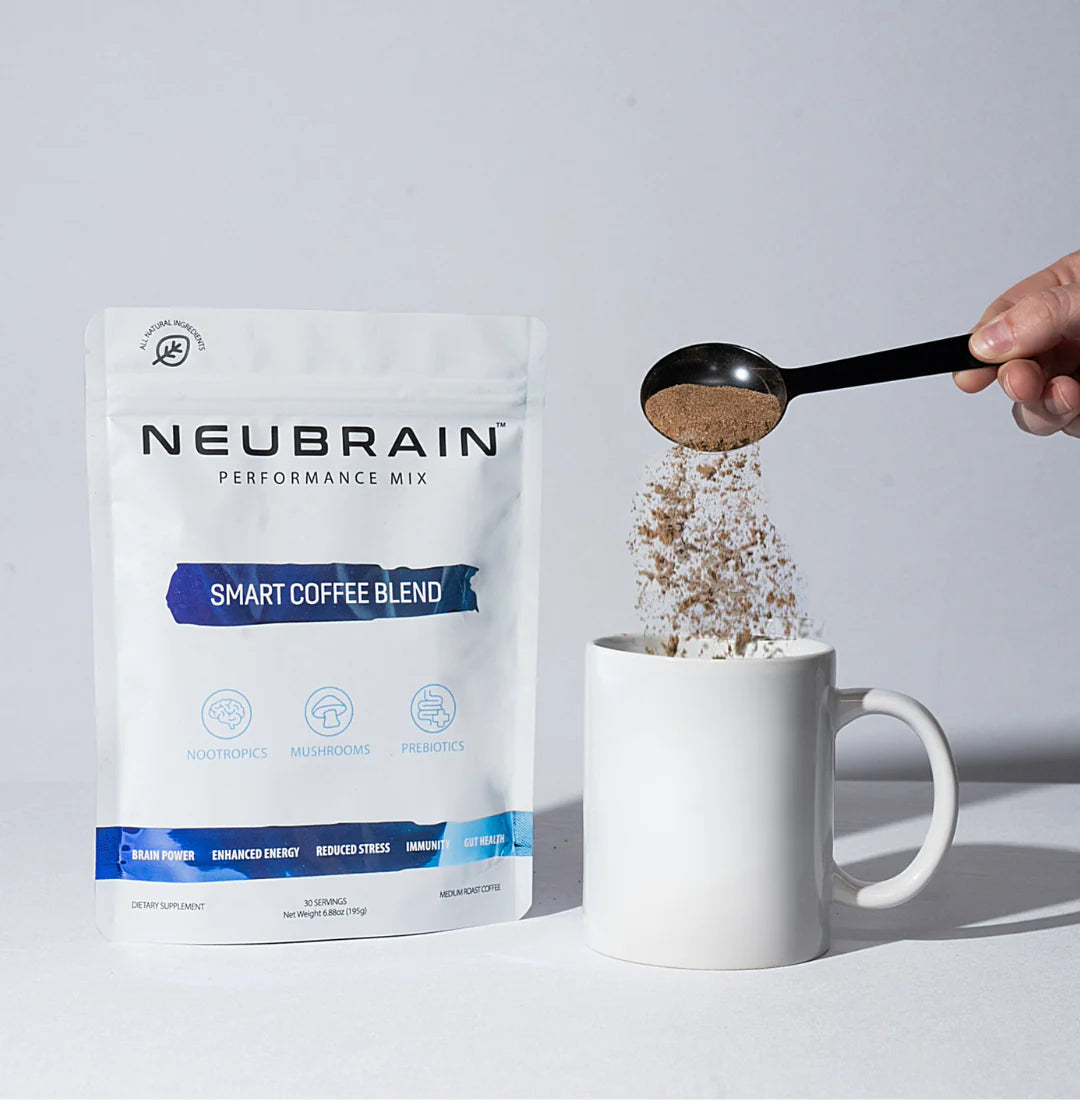Turkey's tail is a medicinal mushroom rich in several chemicals and antioxidants. There is evidence that it can promote the treatment of certain cancers, preserve good gut flora, and strengthen your immune system.
This mushroom is a natural way to help different health problems. Turkey’s tail contains antioxidants, proteins, and various compounds. It also protects intestinal bacteria and helps with certain types of malignancies.
The mushroom's therapeutic properties stem from the presence of polysaccharide peptide (PSP) and polysaccharide krestin. Bioactive substances found in it also have a good impact on human health. It is sometimes referred to as Coriolus versicolor or Trametes versicolor.
Let's discuss about Turkey Tail benefits for boosting the immune system in a bit more detail!
9 Potential Immunity-Boosting Benefits Of Turkey Tail Mushrooms
1. Boost Gut Health
Probiotics are essential for the proper balance of good bacteria in the intestinal tract and help build a healthy immune system. Recent scientific research has discovered that gut bacteria communicate with your immune cells, literally controlling their function.
For instance, a test tube study showed that turkey tail extract changed different bacterial strains in the gut by increasing the levels of good bacteria, including Bifidobacterium and Lactobacillus, while decreasing bad bacteria, such as Clostridium and Staphylococcus.
The bacteria Lactobacillus and Bifidobacterium have been linked to a rise in beneficial effects on the intestines such as diarrhea, a stable immune system, fall in cholesterol levels, lowered risk of particular cancers, and digestion.
In fact, turkey tail can help repair and prevent leakage in the gut!
2. Contains Immune-Boosting Polysaccharopeptides
Turkey tail mushrooms contain many polysaccharopeptides, which are bound with proteins and can also be classified as carbohydrates.
PSK and PSP are two of the polysaccharopeptides in turkey tail mushrooms that can be utilized in enhancing the immune response.
They stimulate and suppress certain immune cells and decrease inflammation generated by the immune system.
Test tube experiments, which are sometimes used to model the effects of nutrients on the human body, demonstrated that PSP increased monocytes, white blood cells that fight infection and enhance the immune system.
PSK activates deaminate potato cells which play a role in immunity against toxins and immune modulation. PSK stimulates natural killer cells, which is one form of WBC that acts as immune cells to attack any foreign invading bodies or cancerous cells.
Due to their enhanced property to mobilize the immune protection for the sick body, PSP and PSK are often used in appendiceal cancer treatment together with surgery, chemotherapy, radiotherapy, or in combination with them in some countries like Japan and China.
3. Packed with Antioxidants
Antioxidants are beneficial complexes that fight or reduce the detrimental effects of oxidative stress sessions.
Chronic inflammation involves oxidative stress due to a disproportionation of antioxidants and small reactive species called free radicals that can harm cells.
This has also been linked with an increased probability of acquiring ailments and diseases, including some forms of cancer and heart ailments.
Turkey tail mushroom currently features an impressive range of phenolic compounds and flavonoids with antioxidant potential.
Phenol and flavonoid antioxidants help maintain the health of the immune system through mechanisms such as inhibiting inflammation and stimulating the production of defensive substances.
Quercetin has been proven to stimulate the production of immunoprotective proteins such as interferon y and to block the enzymes that promote inflammation, such as cyclooxygenase (COX) and lipoxygenase (LOX).
4. Improve Immune Function in People with Cancer
Turkey tail mushrooms have been suggested to contain antitumor constituents which are predisposed to enhancement of immunity.
Recently research came across the fact that the polysaccharopeptide found in turkey tail mushrooms, referred to as PSK, slowed down the growth and metastasis of human colon cancer cells.
The polysaccharide in turkey tail, Coriolus versicolor glucan (CVG), has the potential to suppress certain types of tumors.
A study on tumor-bearing mice revealed that treatment with 45.5 and 90.9 milligrams (mg) per pound or 100 and 200 mg per kilogram (kg) of body weight of CVG extracted from turkey tail mushrooms daily led to a significant reduction in tumor size.
They attributed this outcome to an improved immune reaction.
A systematic review and meta-analysis also found that PSK from turkey tail enhances survival in colorectal or intestinal cancer patients and that when administered together with chemotherapy, had a positive impact on the disease.
5. Fight With Different Cancers
Turkey mushrooms help to alleviate symptoms of the following types of cancers
i. Breast Cancer
The turkey tail mushrooms are helpful to women undergoing treatment for breast cancer.
In fact, a review done in 2008 called for the enhancement of the investigations into the possibility of the turkey tail mushroom and PSK in breast cancer. This was proposed as an additional immunotherapy which was to be used after initial treatments for breast cancer like surgery or chemotherapy.
ii. Lung Cancer
In a 2015 systematic review involving 11 clinical trials and 17 preclinical studies, it was concluded that there was a significantly increased survival of lung cancer patients who used PSK obtained from Trametes versicolor mushrooms and who were under radiation therapy.
The extract also seems to have a positive impact on other aspects of the patient’s condition, including the body weight and immune response.
iii. Colon Cancer
Research on the ethanol extracts of two forms of mushrooms, including the turkey tail mushrooms, showed signs of a positive impact on colon cancer cells.
A cross-sectional study that was conducted in 2019 looked into the impact of the interaction between Trametes versicolor and another type of fungi known as Grifola frondosa, or maitake or hen-of-the-woods mushroom.
The combined mushroom extracts exhibited the capability to inhibit cancer cell proliferation. Researchers also discovered that the two extracts together could enhance the efficacy of 5-fluorouracil, a drug frequently used in colorectal cancer treatment.
iv. Leukemia
A 2013 in vitro study demonstrated promising results in utilizing an extract derived from turkey tail mushrooms for leukemia treatment.
The researchers examined the impact of an extract obtained from Trametes versicolor mushrooms on leukemia cells. They compared its use individually and in combination with Ganoderma lucidum, also known as reishi mushroom.
The researchers discovered that the combination was more potent than Trametes versicolor alone. They hypothesize that this is due to the two distinct mushrooms affecting different biological processes.
This combination might benefit cancer patients on a wider scale.
Other Notable Benefits Of Turkey Tail Mushroom
6. Improve Athletic Performance
A study involving mice demonstrated that turkey tail mushroom extract enhanced exercise performance and diminished indicators of fatigue. The mice treated with turkey tail exhibited reduced blood sugar levels both at rest and after exercise.
7. Improve Insulin Resistance
A study conducted on rats with type 2 diabetes showed that turkey tail mushroom extract substantially lowered blood sugar levels and enhanced insulin sensitivity.
8. Antibacterial Qualities
In an in vitro study, turkey tail mushroom extract demonstrated the ability to suppress the growth of Staphylococcus aureus and Salmonella enterica, bacteria known to cause illness and infection.
9. Combat HPV
A study involving 91 women with Human Papillomavirus (HPV) infection discovered that 84.9% of those treated with a turkey tail mushroom-based vaginal gel exhibited normal pap smear and colposcopy results six months post-treatment. This contrasts with the 64.5% of participants who did not use the gel.
Furthermore, 59.6% of the treated women were completely cleared of the virus, compared to 41.9% of those who did not receive the treatment.
General Dosage Guideline of Turkey Tail Mushroom
The recommended dosage of Turkey tail mushroom varies based on the form in which it's consumed and the specific health goals.
You can follow some general guidelines.
Capsules or Tablets
Turkey mushrooms in pill and capsule form should be taken in two or three dosages of 1-3 grams per day.
Powdered Form
Mushrooms are usable in powder form due to their flour-like consistency. It is advised to consume 1-2 teaspoons (or roughly 2-4 grams) of powdered mushroom daily.
You can have it with teas, smoothies, or other drinks.
Liquid Extract or Tincture
The advantages of mushrooms can also be derived from liquid or tincture form.
Typically, two to three dropperfuls (about one to two milliliters) are taken for that purpose each day.
It's best to follow the product's dosing directions before attempting this.
Mushroom Infused Coffee
Turkey mushrooms and coffee together have intriguing boosting effects. it is recommended to have 1-2 teaspoons (approximately 2-4 grams) of turkey tail mushroom coffee powder per cup of coffee.
You can add sweeteners, milk, or other flavorings as desired.
The recommended daily dose of mushroom coffee is 1-2 tablespoons of Smart Coffee Blend, containing 1850mg of Turkey Tail, Reishi, Lion’s Mane, Cordyceps, and Chaga mushrooms.
The Bottom Line
It is evident that Turkey’s tail is a unique type of medicinal mushroom with diverse health benefits. And the best way to get its benefits is through coffee.
Mushroom coffee contains strong antioxidants and other compounds that boost the immune system and possibly fight certain types of cancer.
Due to its immunomodulatory effect, turkey tail has become one of the most popular natural remedies for enhancing general health.








